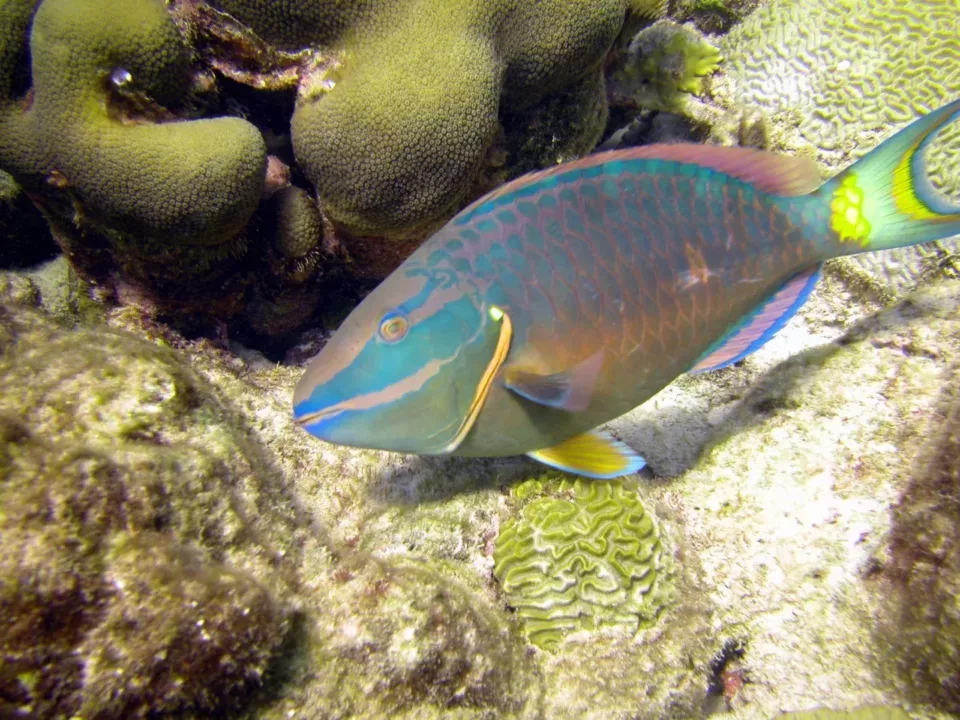Most Caribbean coral reefs will disappear in 20 years if we don’t restore the population of fish that eat seaweed, as Caribbean reefs are gradually getting smothered by algae. This is the message of the new report: Status and Trends of Caribbean Coral Reefs: 1970-2012 released today as the result of a three-year joint effort of the International Coral Reef Initiative’s (ICRI) Global Coral Reef Monitoring Network (GCRMN), the International Union for the Conservation of Nature (IUCN), and the United Nations Environmental Programme (UNEP).
The new report reveals a more than 50% decline in living corals throughout the Caribbean over the past half century. Given that Caribbean coral reefs generate more than US$3 billion annually from tourism and fisheries, and that they are a major oceanic ecosystem, this is truly alarming.
The report also shows that loss of parrotfishes and other grazers has been far more important than climate change for Caribbean reef destruction so far. “While it is true that climate change poses an enormous risk for the future because of coral bleaching and more acid oceans, reefs protected from overfishing and excessive coastal development and pollution are more resilient to these stresses. Healthy reefs will bounce back faster after damaging extreme heating events and hurricanes” says Jeremy Jackson, lead author of the report. “We must immediately address the grazing problem for the reefs to stand any chance of surviving future climate shifts.”
The new report confirms that reef locations where parrotfish are protected from overfishing are the healthiest – such as Flower Garden Banks in the northern Gulf of Mexico, Bermuda and Bonaire which are resilient reefs. But reefs where parrotfish are being overfished have suffered tragic declines. These ‘Failure Reefs’ are where local human impacts are not controlled; these impacts include overfishing but also overuse for recreation, excessive and destructive coastal development, and pollution.
The good news from this report means that Caribbean coral reefs can be saved. The report strongly advocates banning all fish traps throughout the Caribbean, banning spearfishing (a practice that cannot be regulated at the level of fish species), and banning all other fisheries practices that harm parrotfish. “We support the formation of a network of Caribbean nations working together for a unified response to the Caribbean coral reef crisis” says Jerker Tamelander, head of the UNEP coral reef unit.
Some countries are already taking new positive action. Barbuda is moving to ban all take of parrotfish and grazing sea urchins, while also planning to set aside one third of their coastal waters as marine reserves. “We are already seeing the positive effects of these actions,” says Ayana Johnson of the Waitt Institute’s Blue Halo Initiative that is collaborating with Barbuda in the development of their new management plan. “This type of action needs to be taken on throughout the region to increase the resilience of Caribbean reefs”. See the fact sheet for media contacts and more information. Available for interviews:
- In Europe (Switzerland): Carl Gustaf Lundin
- In the USA (Washington DC): Nancy Knowlton
- In Australia: Jeremy Jackson / Terry Hughes
- In Latin America (for interviews in Spanish): Jorge Cortes Nunez
